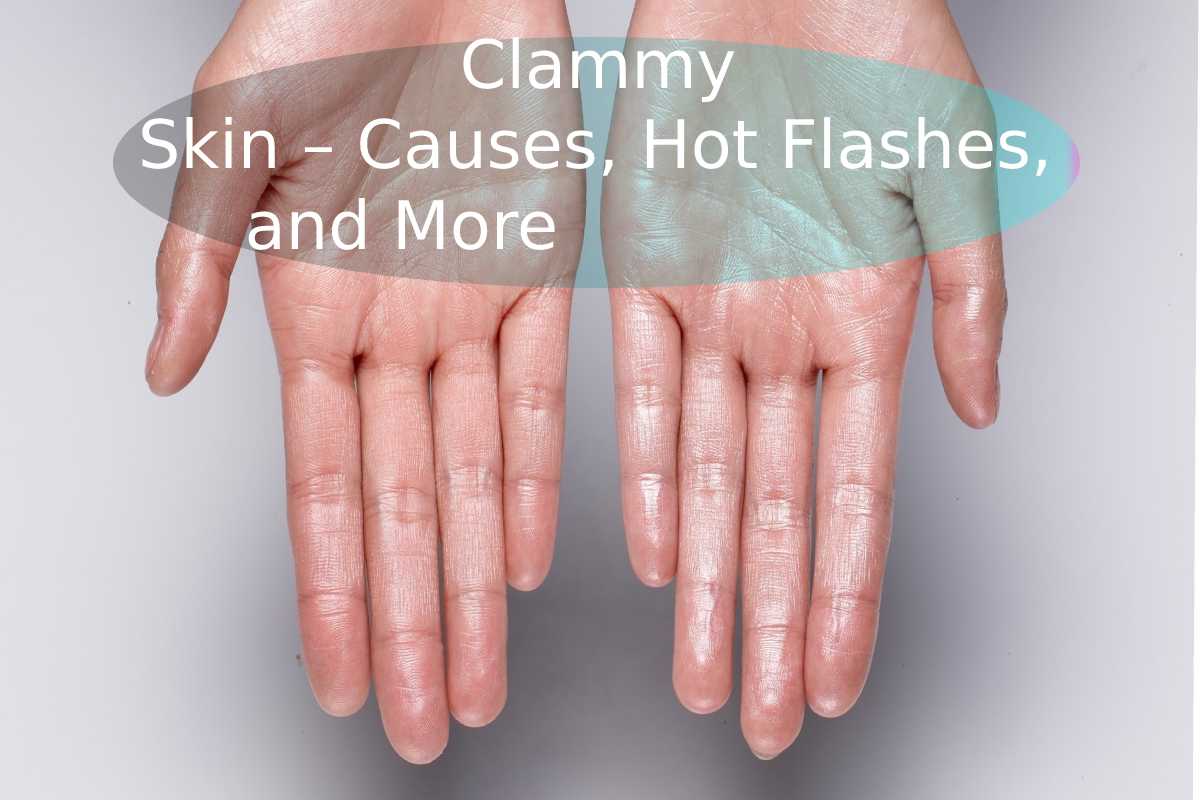Table of Contents
Clammy Skin
Clammy skin generally refers to moist skin from sweating and does not usually indicate an underlying medical problem. Unfortunately, sweating excessively or for no apparent reason may mean another health condition.
Once the body is too hot, it sweats and uses the moisture it creates to cool the body. Here some people will also sweat when they are nervous. Both are entirely natural occurrences.
And also, if a person frequently has clammy skin, they may want to talk to a doctor for a proper diagnosis.
Hyperhidrosis
- The Hyperhidrosis refers to excessive sweating that occurs even when the body does not need to cool down.
- Many people with hyperhidrosis sweat only on one or two body parts, such as the palms of the hands, the feet, under the arms, or on the top of the head.
- These areas can drip sweat while the rest of the body remains dry.
- Hyperhidrosis can affect daily activities and reduce a person’s quality of life. The skin of the affected areas may become soft and white and peel off. It can also cause infections, such as athlete’s foot and jock itch.
- Doctors can often diagnose Hyperhidrosis in a person’s childhood or adolescence.
Causes
- A person is most likely clammy skin because they are too hot.
- Sweating is part of the body’s complex heat regulation system.
- The skin stores most of the body’s water, and some moisture rises to the surface when heat activates sweat glands.
- This moisture cools the body but can make the skin feel clammy.
- Occasionally this mechanism does not work correctly, and a person may be sweaty or have clammy skin when they are not hot.
Hot flashes
- Roughly people may experience periods of sweating during perimenopause and menopause. This sweating usually occurs during a hot flash or at night.
Fever
- An illness or infection can cause fever if a person’s body temperature exceeds 38°C (100.4°F). Fevers often cause sweating.
- The Fever is part of the body’s natural immune response and is not necessarily a cause for alarm.
- As the body fights the infection, the fever usually subsides. However, if the fever lasts more than 48 hours, the person should see a doctor.
Overactive thyroid
Here an overactive thyroid, or hyperthyroidism, can cause excessive sweating. The condition increases a person’s metabolism, making them feel warm.
Other symptoms of hyperthyroidism include:
- excitability and hyperactivity
- trouble sleeping
- heat sensitivity
- Cut
- excessive thirst
- Diarrhea
Heart attack
In rare cases, cold sweat or clammy skin is a heart attack symptom. Heart attacks require immediate medical attention.
Other essential warning signs to watch out for are:
- chest pain or discomfort
- pain or discomfort in the arms, back, neck, jaw, or upper stomach
- difficulty breathing
- nausea
- daze
When to see a doctor?
- If sweating makes the skin clammy, it’s usually nothing to worry about and doesn’t require medical attention.
- However, if a person sweats excessively for no apparent reason, there may be an underlying cause.
- Somebody with clammy skin and other signs of a heart attack requires immediate emergency medical attention and should call 911 or the local emergency number.
- However, if someone is experiencing the symptoms of underlying conditions, such as hyperhidrosis or hyperthyroidism, they should tell a doctor for a proper diagnosis.
- People who experience hot flashes during perimenopause that interfere with daily life can talk to a doctor to create a personalized treatment plan.
Also Read: Skin Color Palette – Temperature, Skin Tones, and More
